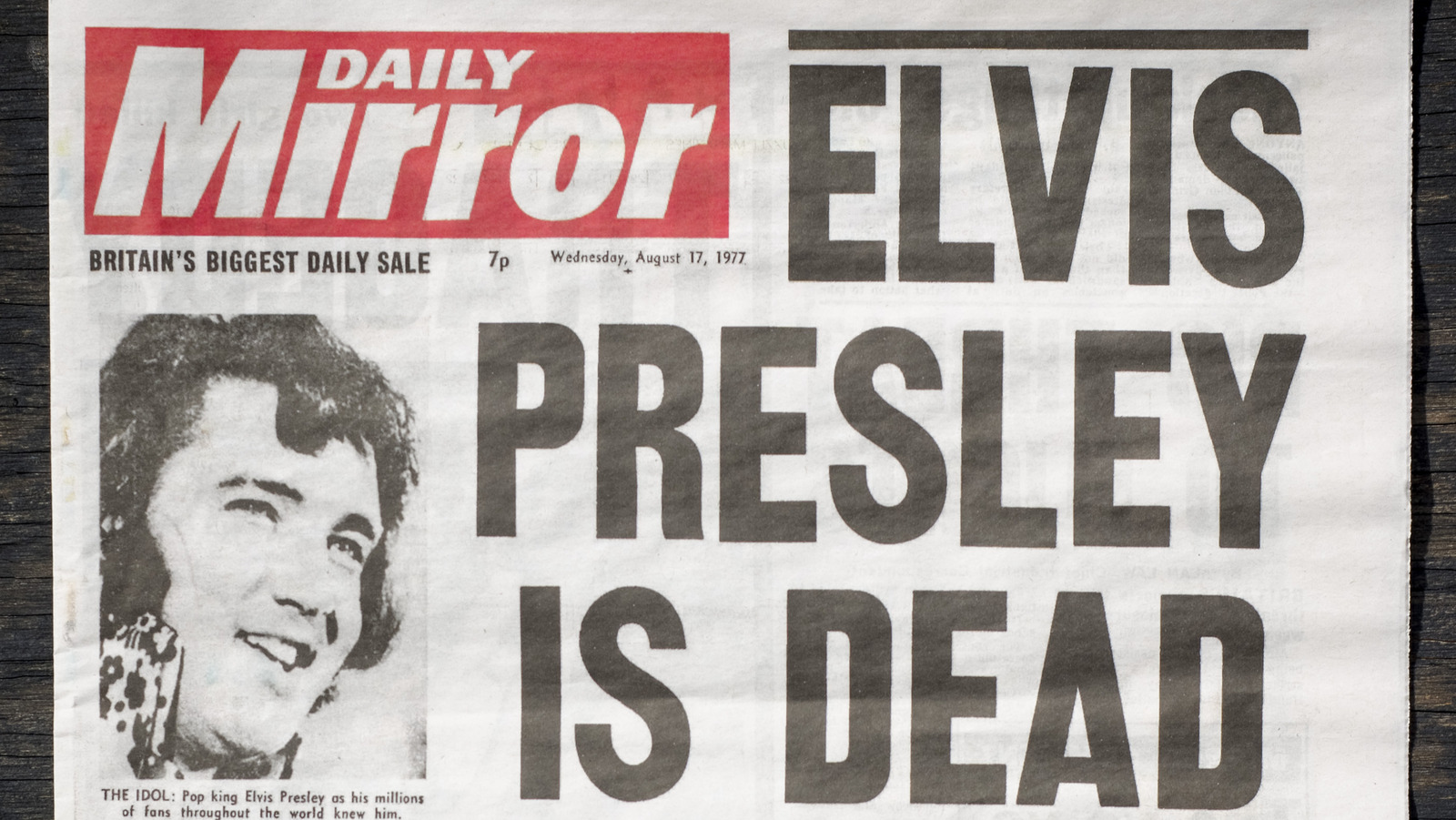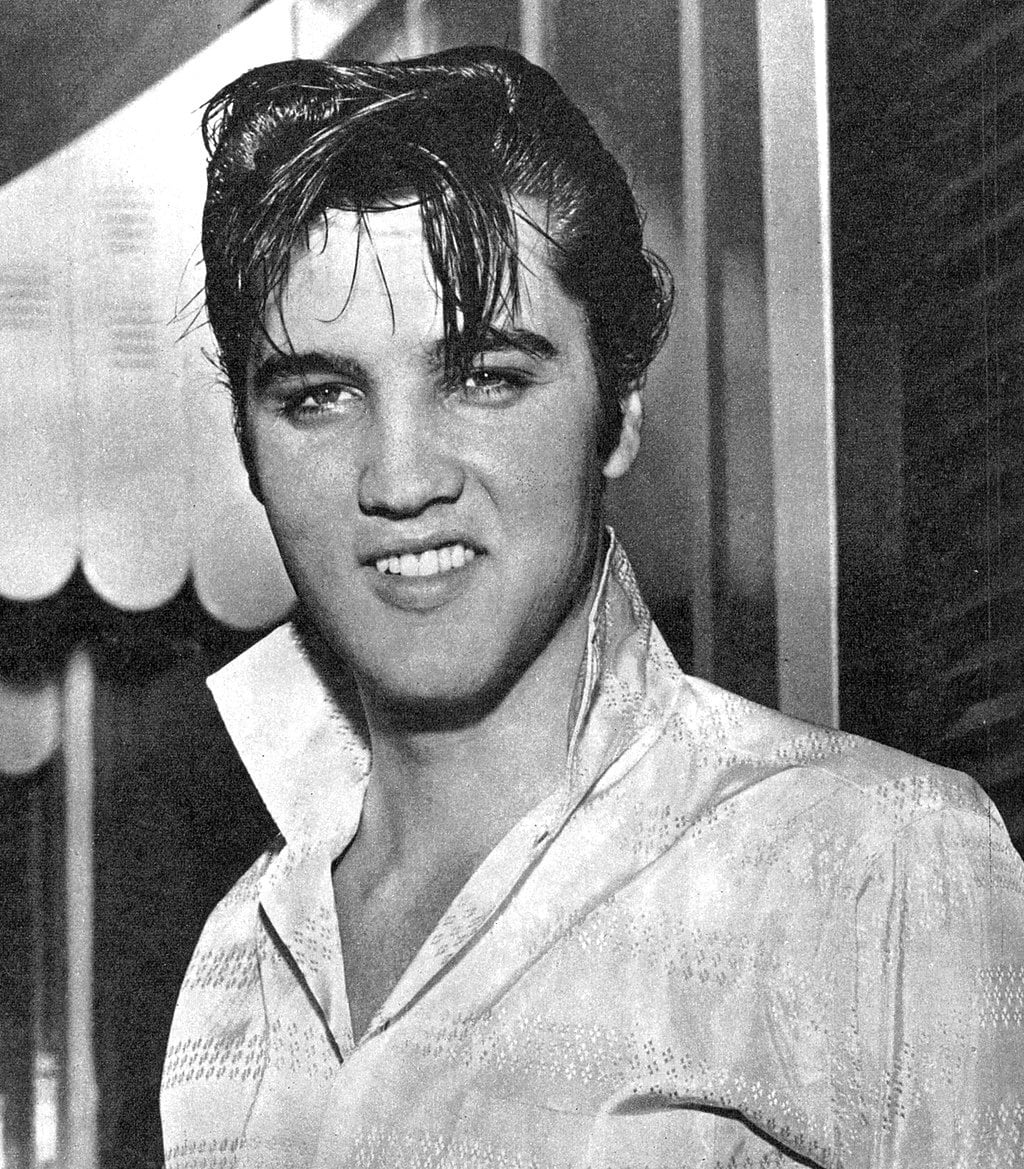Elvis Presley, the King of Rock 'n' Roll, remains one of the most iconic figures in music history. His untimely death on August 16, 1977, sent shockwaves around the world, leaving fans devastated. But what exactly happened on that fateful day, and how has his legacy endured over the decades?
Elvis Presley's life was a rollercoaster of success, struggles, and transformation. From his humble beginnings in Tupelo, Mississippi, to becoming a global superstar, his journey was nothing short of extraordinary. Yet, his death remains a topic of fascination and speculation for many. In this article, we will explore the circumstances surrounding his passing and delve into the impact of his life and career.
As we mark the years since his passing, it's essential to remember the man behind the legend. This article provides a comprehensive look at when Elvis died, what led to his death, and how his influence continues to shape music and popular culture today.
Read also:Is Jd Vances Mother Alive Exploring The Life And Legacy Of Bev Vance
Table of Contents
- Elvis Presley Biography
- When Did Elvis Die?
- Cause of Death
- Timeline of Events
- Elvis Presley's Legacy
- Impact on Music
- Elvis and Fame
- Health Issues
- Graceland: A Tribute
- Conspiracy Theories
- Sources and References
Elvis Presley Biography
Before we dive into the details of his death, let's take a moment to explore the life of Elvis Aaron Presley. Born on January 8, 1935, in Tupelo, Mississippi, Elvis grew up in a modest household. His parents, Vernon and Gladys Presley, instilled in him a strong sense of family values and a love for music.
Early Life and Career
Elvis's passion for music began at a young age, influenced by gospel, blues, and country. He moved to Memphis, Tennessee, with his family when he was 13, where he eventually recorded his first song at Sun Studio in 1954. This marked the beginning of his rise to fame.
Biographical Data
| Full Name | Elvis Aaron Presley |
|---|---|
| Birth Date | January 8, 1935 |
| Birthplace | Tupelo, Mississippi |
| Death Date | August 16, 1977 |
| Occupation | Singer, Actor |
When Did Elvis Die?
Elvis Presley died on August 16, 1977, at the age of 42. The news of his passing shocked the world and left fans in disbelief. His death occurred at his home, Graceland, in Memphis, Tennessee, where he spent much of his later years.
Details of His Passing
Elvis was found unresponsive in his bathroom by his girlfriend, Ginger Alden, who immediately called for help. Despite the efforts of medical personnel, he could not be revived. The official time of death was recorded as 3:30 PM.
Cause of Death
The official cause of death was listed as a heart attack, but the circumstances surrounding it have been widely debated. Elvis had been battling health issues for years, including obesity, high blood pressure, and addiction to prescription drugs. These factors likely contributed to his untimely demise.
- Heart-related conditions
- Drug dependency
- Other health complications
Timeline of Events
Understanding the events leading up to his death provides insight into the pressures and challenges Elvis faced in his final years.
Read also:Where Is Ron Eldard Now Exploring The Career And Life Of The Renowned Actor
Final Performances
In the months before his death, Elvis continued to perform, despite visible signs of declining health. His last concert took place on June 26, 1977, in Indianapolis, Indiana. Fans noted his weight gain and lack of energy during this period.
Final Days
Elvis spent his final days at Graceland, preparing for an upcoming tour. On the morning of August 16, he complained of feeling unwell, which turned out to be the beginning of the end.
Elvis Presley's Legacy
Despite his death, Elvis's influence continues to resonate across generations. His music, style, and cultural impact have left an indelible mark on the world.
Enduring Popularity
Elvis remains one of the best-selling music artists of all time, with estimated sales of over one billion records worldwide. His songs, such as "Jailhouse Rock," "Can't Help Falling in Love," and "Suspicious Minds," continue to be celebrated and covered by artists today.
Impact on Music
Elvis revolutionized the music industry by blending different genres and bringing rock 'n' roll to mainstream audiences. His innovative approach paved the way for future artists and genres.
Influence on Future Artists
Many musicians cite Elvis as a major influence, including Michael Jackson, Madonna, and Bruce Springsteen. His ability to connect with diverse audiences and push musical boundaries set a new standard for performers.
Elvis and Fame
Fame came at a cost for Elvis. The pressures of stardom, combined with personal struggles, took a toll on his mental and physical health. Understanding the complexities of fame can help us appreciate the challenges he faced.
Public Image vs. Reality
While Elvis was adored by millions, his private life was fraught with difficulties. Balancing his public persona with personal relationships proved to be a constant challenge.
Health Issues
Elvis's health deteriorated significantly in his later years. Chronic health problems, coupled with substance abuse, contributed to his early death. Examining these issues highlights the importance of addressing mental and physical well-being.
Substance Abuse
Elvis's reliance on prescription medications became increasingly problematic. While initially prescribed for legitimate medical conditions, his dependency grew over time, affecting his overall health.
Graceland: A Tribute
Graceland, Elvis's beloved home, has become a shrine to his memory. Today, it serves as a museum and tourist attraction, welcoming fans from around the world to honor the King of Rock 'n' Roll.
Annual Celebrations
Each year, thousands gather at Graceland to celebrate Elvis's life and legacy during events like the "Elvis Week" commemoration. These gatherings provide a sense of community and shared appreciation for his contributions to music and culture.
Conspiracy Theories
As with many iconic figures, Elvis's death has sparked numerous conspiracy theories. Some believe he faked his death to escape the pressures of fame, while others speculate about hidden truths behind his passing.
Fact vs. Fiction
While these theories make for intriguing stories, there is no substantial evidence to support claims that Elvis is still alive. The official records and investigations confirm his death on August 16, 1977.
Sources and References
This article draws on reputable sources to provide accurate information about Elvis Presley's life and death. Below are some references used:
- Elvis Presley's official website
- Biographies by authoritative authors
- Interviews with people close to Elvis
Conclusion
Elvis Presley's death on August 16, 1977, marked the end of an era, but his legacy lives on. Through his music, performances, and cultural impact, he continues to inspire millions. As we reflect on his life and career, let us celebrate the contributions he made to the world of entertainment.
We invite you to share your thoughts and memories of Elvis in the comments below. Additionally, consider exploring other articles on our site that delve into the history and influence of legendary artists. Together, we can keep the spirit of the King alive for future generations.


